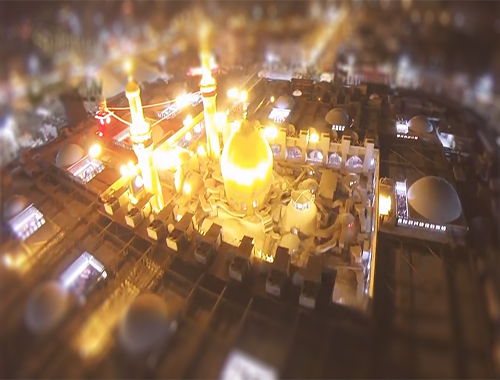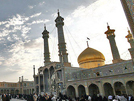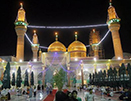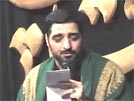Introduction
- Details
- Hits: 4257
Chapter 2
Introduction
--------------------------------------------------------------------------------
What is Islam?
"Islam"[1] means "submitting or surrendering one's will to the will of Allah".[2] Mankind naturally submits to Allah; this instinct was born with him on the day of his creation. In reality, the entire universe - the stars, the planets, and the oceans - submits to the will of Allah through its ordered workings. Modern science calls this phenomenon "the laws of nature," but these laws of nature, from an Islamic perspective, are not just any laws of nature but the laws of Allah for nature. Human beings, as creatures of Allah who are in need of Him throughout their entire lives, must also surrender their wills and desires to the will of the Almighty, the Creator.
Submitting to Allah does not mean humiliating the individual self or denying the human intellect; rather, it means trusting in the knowledge, wisdom, and fairness of the Creator. People voluntarily give over their lives to others almost every day; for example, passengers embarking on an airplane place their lives in the hands of the pilot because of the pilot's knowledge, experience, and assumed goodwill. Similarly, friends trust friends, and if a wise, knowledgeable, rational, and good-intentioned friend invites another to go into the middle of the desert in the middle of a dark night, that person would follow because he knows that his friend would not endanger his life. The decision to trust a person with more knowledge is logical, and so people do not abandon their own intellects by trusting in the wisdom of God.
"Islam" has other meanings, one of which is "to have peace." Allah has said in the Holy Qur'an:
"He is Allah - there is no God but Him - the King, the Holy One, and the Peace." (59:23)
"And Allah invites to the abode of peace." (10:25)
By its connotations of peace and safety, "Islam" indicates that the religion of Islam is free from any deficiencies or defects. As a religion, Islam is perfect because it was ordained by Allah and not invented by humankind.
Prophet Abraham (peace be upon him) was the first person that God commanded to use the words "Islam" and "Muslim"[3]:
"It [Islamic monotheism] is the religion of your father Abraham. He [Allah] has named you Muslims both before and in this [Qur'an]." (22:78)
"Abraham was neither a Jew nor a Christian, but he was a true Muslim (submissive to Allah) and was not one of the polytheists." (3:67)
Not only Prophet Abraham (peace be upon him) but also all the sincere, truthful people after him called their religion "Islam." Prophet Joseph (peace be upon him) says in the chapter of the Qur'an named "Joseph":
My Lord! You have given me authority and taught me the interpretation of things. O Creator of the heavens and earth! You are my guardian in this world and in the Hereafter. Cause me to die as a Muslim, submitting to Your will, and join me with the righteous. (12:101)
Thus Allah declares in the Qur'an: "Truly the religion before Allah is Islam." (3:19)
Who are the Muslims?
Muslims are the followers of the religion of Islam, i.e. those who submit to the will of Allah as explained in the Qur'an and the sayings of Prophet Muhammad (peace be upon him and his family), the Messenger of Islam. The Muslim population today is about 1.2 billion and is spread over a vast range of races, nationalities, and cultures. Approximately 18% of the Muslims live in the Arab world, but the majority live in Asia and Africa. The country that has the largest Muslim population is Indonesia, and significant Muslim minorities exist in Russia, China, and Europe as well as North and South America. The Muslim population of the United States is estimated to be around 6 million.
How does someone become a Muslim?
The basic requirement to become a Muslim is to say, "Ashhadu an laa ilaaha illa Allah wa ashhadu anna Muhammadan rasul Allah," which means, "I testify that there is no God but Allah and that Muhammad is the Messenger of Allah." Anyone who says this phrase joins the ranks of the Muslim nations. However, saying this only begins the long physical and spiritual journey to practice all aspects of Islam in life and become one of those whom the Qur'an terms "the faithful" (mu'min). Although this journey is long, its rewards are numerous for those who embark on it with sincere will and intentions.
Practicing Islam requires learning the Islamic ideas, teachings, and practices, and then adapting to them - a process that does require some sacrifice. The necessity of sacrifice, however, should not be a deterrent since the Holy Prophet Muhammad (peace be upon him and his family) has said that whenever someone gives up something for the sake of Allah, Allah will replace it with something better.
Sincerity of belief also develops over time. When Prophet Muhammad (peace be upon him and his family) was first spreading the message of Islam, some people came to him and informed him that they were believers. In reply, Allah revealed: "Say: 'You believe not, but say, 'We have submitted in Islam,' for faith has not yet entered your hearts.'" (49:14)
The first successor to the Holy Prophet, Imam 'Ali (peace be upon him), has described the dynamic process of following Islam:
I am defining Islam as no one has defined it before me: Islam is submission,
submission is conviction, conviction is affirmation, affirmation is acknowledgement, acknowledgement is performance of obligations, and the performance of obligations is good deeds.[4]
Notes :
[1] From the Arabic verb aslama
[2] The Arabic word for God
[3] "Muslim" refers to a follower of the religion of Islam
[4] Nahj al-Balagha (The Peak of Eloquence), saying #125











